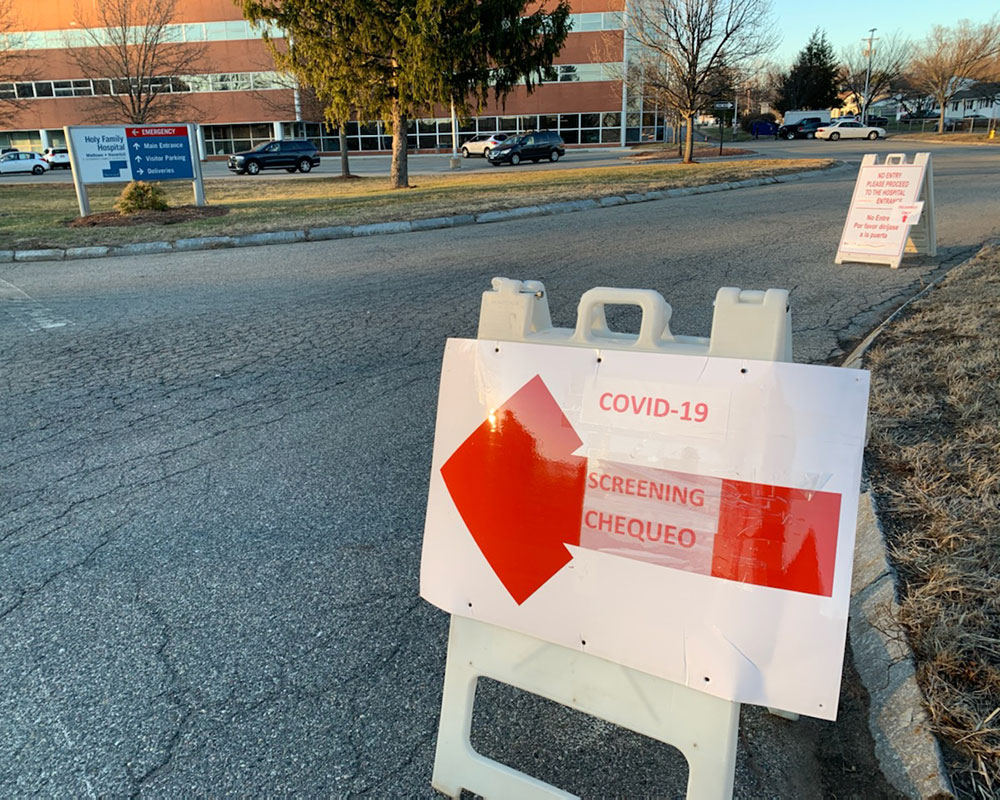The embattled finances of Holy Family Hospital and other Steward health care properties came into public view last week as the for-profit chain temporarily fought off a vendor’s threat to end dialysis services for nonpayment.
In a filing in Essex County Superior Court last Wednesday, Steward pinned its problems on the coronavirus pandemic and later “labor shortages, broken supply chains, increased costs of goods and labor, resource deficiencies and rapid inflation.” Lawyers also told the court the temporary closure of Steward Norwood Hospital in June 2020 and the “catastrophic fire and temporary closure” of the unaffiliated Signature Brockton Hospital in Feb. 2023 “have led to a tremendous strain on the entire regional health system in Massachusetts.”
“The confluence of these various factors and events led to Steward being late on certain payments under the Massachusetts Agreement,” lawyers wrote, winning a temporary restraining order to force Fresenius Management Services to continue providing dialysis services.
Besides Holy Family Hospital, Morton Hospital, Taunton, and St. Anne’s Hospital, Fall River, use Waltham-based Fresenius’ renal replacement therapy and dialysis services.
A full hearing on whether the court should issue Steward’s request for a preliminary injunction is scheduled for Friday, April 7.
Steward told the court it was late making a March 1 payment that was required by a new February agreement with Fresenius. That pact required Steward to catch up on past balances with payments on the first of each month—March through June, but lawyers told the court the new agreement “contained a new, and highly punitive, termination provision,” allowing Fresenius to terminate services upon 10 days written notice. The vendor gave notice March 6, but Steward said it had since paid more than $1 million, representing outstanding amounts due and an advance on amounts due in April, May and June.
Steward’s lawyers argued Fresenius “steadfastly refused to agree to cooperate in the orderly and safe transition of these services to another provider…” and asked for relief until May 1—during which time Steward said it offered to prepay for services.
While admitting it agreed to Fresenius’ terms, Steward lawyers argue the agreement “violates Massachusetts public policy.”
Steward says its relationship with Fresenius began in 2010 and it forged a new agreement last Aug. 1. An amended agreement last Sept. 29, Steward said in its filing, “effectively eliminated Fresenius’ ability to terminate the Massachusetts agreement for non-payment…”
Last September, Steward said in a press release, it reached agreement with its lenders, led by Citibank, to secure an “interim extension of the maturity of the previous credit agreement.” At the time, Steward Health Care CFO Christopher Dunleavy was quoted in the release as saying, “Our business continues to strengthen quarter by quarter. We are pleased with our current financial performance and are well-placed for the future of care delivery.”
To be transparent, WHAV’s parent, Public Media of New England Inc., recently stepped up its efforts to collect underwriting amounts promised by Steward.

